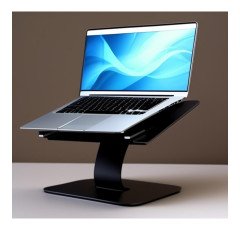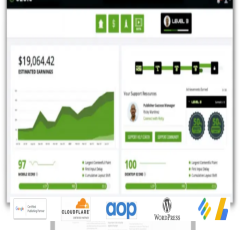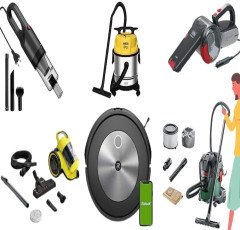
Laptops in Class? Here's Why They’re the Key to Academic Success

In today's fast-paced, technology driven world, a laptop is not just a convenience for students - it's a necessity. I realized how much of an impact this powerful tool can have on both academic performance and overall productivity. If you are a student or know someone who is, here's a breakdown of why a laptop can be your best academic companion and how to get the most out of it.
How to use a laptop effectively as a student
One of the first things to focus on is using your laptop effectively. It's easy to get distracted by the endless sea of entertainment available online, but with a little discipline, your laptop can become your pinnacle of productivity. Start by organizing your files and creating a dedicated workspace. Having your documents, notes and assignments in easy-to-access folders helps reduce clutter and save time when deadlines are approaching.
Using cloud services like Google Drive or Microsoft OneDrive for backup will ensure that your work is safe and accessible from anywhere. Time management tools like Trello or Google Calendar can help prioritize tasks and set reminders for important deadlines. Effective use of a laptop essentially boils down to treating it as a workspace, not just a display device.
What are the advantages of a laptop?
The benefits of having a laptop as a student are numerous. First, it offers flexibility. You can work from anywhere, Be it the comfort of your room, a coffee shop or a library. This kind of freedom allows you to find the ideal study environment and be more productive.
Another big advantage is the easy access to extensive educational resources online. With just a few clicks, you can access articles, eBooks, video tutorials, and research papers to help you deepen your understanding of various topics. In addition, notebooks allow for faster note-taking during lectures. Typing is often faster than handwriting, and digital notes are easier to organize and edit later.
A laptop makes group work easier. Collaboration becomes seamless through video calls, shared documents, and collaboration platforms like Google Docs, allowing you to work on projects together even if your group is spread out across locations.
Importance of laptops in education
Education is becoming more and more digitized today. As online learning platforms and virtual classrooms grow in importance, a laptop is essential for engaging with modern learning systems. It bridges the gap between traditional learning methods and today's digital advances.
From attending virtual classes to completing assignments online, a laptop allows students to engage in learning in a way that is interactive and effective. It also provides students with the skills they will need for the future workforce where digital literacy is an essential requirement. Using a laptop for research, writing, coding, or even design work helps students better utilize technology for problem solving and creative tasks, skills that are in high demand in today's job market.
Why students should be allowed to use laptops in class
There is an ongoing debate about whether students should be allowed to use laptops in class. In my experience, the benefits far outweigh the concerns. A school notebook can enhance the learning process by allowing students to take thorough notes, record important discussions, and even search for relevant information in real time.
It also encourages active participation. Students can share their screens and show their findings during class discussions or use interactive tools to engage more deeply with the material. Of course, there is always the potential for distraction, but with clear instructions and a focus on responsible use, laptops can greatly enrich the classroom.
Laptops vs Tablets: What's the Difference and Which is Best?
Many students may wonder if a tablet could serve as a viable alternative to a laptop. While tablets are portable and user friendly, they often lack the full functionality of a laptop. For example, laptops generally offer more powerful processing capabilities, more storage and the ability to run complex software such as Adobe Creative Suite or programming environments, something essential for students studying design, engineering or computer science.
Laptops also provide a more comfortable typing experience, which is essential for writing essays, taking notes, or working on assignments. While tablets can be useful for quick browsing or taking notes during lectures, they ca not match the multitasking performance and versatility of a laptop. In most cases, especially for higher education, a laptop turns out to be the best tool.
7 reasons or advantages of laptops for students
A laptop is not just a piece of technology – it's a game changer for students. Whether you are taking notes in class, working on a research paper, or collaborating on a group project, a laptop offers the flexibility, convenience, and tools you need to succeed. Adopting this basic educational facility will prepare students for success both academically and in their future careers. So if you're on the fence about investing in a laptop, trust me - it's worth every penny.












































































































 Only For The United States
Only For The United States  Graphics & Design
Graphics & Design  RPM 3.0
RPM 3.0  Men Clothing
Men Clothing  ELECTRONIC ACCESSORIES
ELECTRONIC ACCESSORIES  Best Home Appliances
Best Home Appliances  TitTok Revolution
TitTok Revolution  NordPass
NordPass  ASUS Laptop
ASUS Laptop  Smart Doorbell
Smart Doorbell  BEST SELLER TOP10
BEST SELLER TOP10  Online Technology Classes
Online Technology Classes  Women Fashion
Women Fashion  Creative Brief For Video Shoot
Creative Brief For Video Shoot  Favorite Company (Cuelinks)
Favorite Company (Cuelinks)  Amazon Best Selling Products
Amazon Best Selling Products  Hot Bags For Pain Relief
Hot Bags For Pain Relief  Unreal Engine 5 For Beginners Learn The Basics Of Virtual Production
Unreal Engine 5 For Beginners Learn The Basics Of Virtual Production  One World Collection
One World Collection  Acer Laptop
Acer Laptop  The Click Engine
The Click Engine  Best Selling Books
Best Selling Books  The Secret Email System
The Secret Email System  All Wireless Products
All Wireless Products  Unlimited access to classes on illustration, photography, design, film, music
Unlimited access to classes on illustration, photography, design, film, music  Best Sellers On Amazon
Best Sellers On Amazon  Online Marketing
Online Marketing  Artificial Intelligence
Artificial Intelligence  ASPINAL LONDON
ASPINAL LONDON  Best Robotic Vacuum Cleaners
Best Robotic Vacuum Cleaners  NordVPN
NordVPN  SOFAS
SOFAS  Sennheiser
Sennheiser  SEO Checklist
SEO Checklist  1150+Trendy kids coloring pages Bundle
1150+Trendy kids coloring pages Bundle  NordLocker
NordLocker  Top Rated From Amazon
Top Rated From Amazon  Hello Theme
Hello Theme 
















